Dashnor Kaloçi
Memorie.al publishes the unknown story of Gjek Nik Marinaj originally from the village of Brrut i Bajza e Kastratit in Malësia e Madhe, the seventh child of one of the poorest families in that province, who lived in extreme poverty, as often sometimes they slept without eating bread, but from the great passion that Gjeka had for books and poetry, in 1981 when the third edition of Kadare’s “Winter of great loneliness” came out, he was forced and secretly tore his parents, tore the mattress and wool that took it from there, sold it in the market and with the money earned, bought the novel of the famous writer he had as an idol. Gjek Marinaj’s rare testimonies about the great misery where his family lived at that time and the great passion he had for poetry, so much so that in 1990, with the help of his friends, famous poets and writers, Zija Çela and Rudolf Marku, as well as the kindness of Ndoc Gjetje, he managed to publish a cycle of poems in the newspaper “Drita”. How do you remember today, after 31 years, Rudlof Marku, the acquaintance and friendship with the very talented young man from Malësia e Madhe, whose poem entitled “Horses”, caused a great commotion and had an extraordinary echo, so much so that the whole circulation of that newspaper, was immediately sold in all the cities of the country, and people carried it in their pocket, as if it were a tract with anti-communist content, reading it to each other secretly, even though it had been published in the newspaper! The testimony of the writer Nasi Lera, for the publication of that poem that shocked not only the Writers and Artists League, but caused confusion to the Tirana Party Committee, from where they called him to hold him accountable, because such a poem had been published! The noise caused by the publication of that poem in the district of Shkodra, so much so that Gjeka was announced to appear in the Department of Internal Affairs, which forced him to flee from Albania to Yugoslavia and then to the USA, where he lives from 31 years…!
It was the last Sunday of August 1990, when in a corner of the literary newspaper “Drita”, a very short poem was published entitled “Horses”, which attracted the attention of many readers and made a extraordinary commotion, so much so that the large circulation of the well-known newspaper was swallowed up within the day. But what was that poem, who was its author and what was said there in those few lines that many people began to secretly copy and distribute to each other through pieces of paper, even though it was published in the official press?
Gjek Nik Marinaj, based in Richardson, Texas in the United States of America, where he has lived since 1990, when he fled Albania after the publication of the famous poem, tells Memorie.al, everything from that distant event of the past 31 years, when those few verses caused confusion to the top of the pyramid of the communist state of that time, to punish the editorial staff of the newspaper “Drita” and the rebellious author himself, who dared to write: “Yes, we were and remain horses before man ”.
Gjek Marinaj: In our family we slept without bread…!
He lived with his family in a deep village of Malësia Madhe, called Brrut, which belonged to the locality of Bajza e Kastratit. It is not even known how long he would have stayed in that village lost among the cliffs of the mountains with those few houses, as if in August 1990 he had not been published that poem which completely changed the course of his life. Gjeka’s family, like many other families at the time, lived in deep, even extreme, poverty. Regarding the situation in which he was at that time, Gjeka recalls: “My father and mother, due to the conditions they had with a minimal education, were forced to work hard, to raise us seven children, who were in line one after another. Our house, like all Brrut’s houses, was quite old and since we were many children, my father had started to build a new house, to change our living a little. But this was very difficult for him, as not only did we have no money, but in our village there were no building materials at all. So the father, when he returned from Hoti where he worked in the Reclamation Company, always brought with him a bag of sand, which he carried on his back all the way. After leaving the bag, before going to bed, he went and worked another two hours, breaking the stones we needed for the new house. Likewise, the mother, on the other hand, was even more enslaved. She woke up at night and after cooking something for us and my father, she went to work in the cooperative, from where she returned only at dinner, with a load of wood on her back. She never had time to rest, as she washed our clothes, worked in the little personal garden we had, and helped her father build the new house. Although they did all the chilling and stifling work, we often ran out of money to buy bread. This is how I remember the man who brought the bread to our village (loaded in baskets on mules and donkeys), every time he shouted loudly: “Oooo Nik Marinaj! If you have the money, come and get the bread, otherwise, run away… ”. That voice often sounded bad to me, because not infrequently we lacked money and those loaded mules, waited in vain for the seven of us children, who slept without eating dinner. The parents, in continuation of their efforts to somehow arrange our living, settled and moved to the village of Bajza. Also, where we went, our living had no change from Brruti where we lived before “, Gjeka concludes his description of the very difficult, even miserable economic situation, in which their family was at that time in those villages of Shkodra Mountain.
Indulged in poetry…!
Although he lived in a miserable condition, Gjeka had a passion for reading books, both Albanian and foreign literature. In this regard, he recalls: “Long before I started writing poetry, I started reading literature, mainly poetry. From reading literature and poetry in particular, I developed a desire to cultivate it in the genre of poetry. Not only for writing poetry, but also for reading it, I have often been punished by both my parents and society. I remember today, when in 1981, the third edition of Ismail Kadare’s novel “winter of great loneliness” was published and I asked my mother for money to buy it. At that time, my father was hospitalized and my mother had no money to help me buy that book. As crazy as I was after Ismail Kadare and determined to buy that book, I made a plan that would allow me to close that problem. So secretly to my mother, I opened the mattress on which I slept and took out the ragged sheep wool that was there and instead of the wool, I put in there some old clothes of my brothers and sisters. After that, I went to the village shop and sold the wool, and with the money I earned, I was able to buy Kadare’s book. The next day all day I read the book on my feet, as I could not sit in the chair from the scars of the birch that my mother had “comforted” me, after she had spotted my iniquity. Another time, when I was not more than 11 years old, Ndoc Papleka’s book “Njatjeta Diell” was published in a bookstore. At that time I ran away from school and went to a villager to ask for a liter of brandy, as the Math teacher had allegedly sent me. After I got the brandy, on the pretext that my mother needed some money, I sold it to another villager and so I was able to get the money for the book. To me, poetry is the most superior genre of art. Only in poetry can you find a common genius composition of the arts, in a single poetic body and soul, such as: the imaginative musicality of a composer, the mediatic image of a painter, the condensed prose of a novelist, the vibrating drama of a playwright, of the spiritual medicine of a reader. In a way I live to read and create poetry”
Writer Nasi Lera: Here is how we published Marinaj’s “Horses”
With a bunch of poems in his pocket, Gjek Marinaj often came to Tirana and met his two friends, writers and poets, Zija Çela and Rudolf Marku, who, seeing the talent he had, tried to publish a poem or a cycle poetic. But how did he manage to publish that poem in the pages of “Drita” where at that time many other poets had dreamed of such a thing? Regarding this, the well-known writer Nasi Lera, recalls: “I knew Gjeka there in the spring of 1990, when he came to the editorial office of the newspaper” Drita “to publish a poem. He was a very educated and very talented boy in poetry. While we were drinking coffee at the Writers’ League club, Gjeka gave me a cycle of poems to watch. After a while, he came to our table and Ndoc Gjetja, whom after introducing him to Gjeka, I told him to publish a cycle, giving him a short presentation, since he was a young author, and he was publishing it for the first time. As we talked, Ndoci published to Gjeka one of those poems that he liked the most which was entitled “Horses”. I do not remember well on Monday or Tuesday as soon as I went to the office, they called me from the Party Committee of Tirana and told me: what was that poem we had published in the newspaper and who was its author. I replied that: he was a young boy from Koplik and very talented, and since he worked in the village with horses, he was very much in love with them and had dedicated a poem to you. On the other side of the phone, they told me that it was not as I was explaining it to them, because from Shkodra, where a big problem had become, it was interpreted differently. They had called and told you that: he (Gjeka) with the horses personified the crowds of people. I replied that for that poem, that was my opinion and I had nothing else to say to you. I do not know what happened next to Gjeka, but I found out that he had problems in Shkodra, where that poem had caused a great commotion and after that he had escaped “.
Gjeka: This is why I escaped after the publication of “Horses”
The publication of the poem “Horses” had a great echo, because it openly alluded against the totalitarian system of the communist regime in Albania. In this regard, Gjeka recalls: “A few days after the publication of the poem, on September 11, 1990, a letter came to me from the Shkodra Branch of Internal Affairs, where I was informed to appear there, the next day on the 12th at 8.00. I was quite clear why I was wanted in the Branch and decided to flee Albania, fleeing the border to Yugoslavia, and then to America. The idea to escape, I had before, (back in 1989 and to prepare, I went down to Shkodra every day, training with the athletics team “Vllaznia”), but that letter from the Internal Affairs Branch, hastened it to me. For the decision I made, I talked only with my cousin, Tonin Marinaj (for years and currently, Mayor of Koplik), who more than a cousin, I had a close friend, because he was a very loyal boy and I talked to him everything. So on the night of September 12, 1990, I set off in the direction of Rrapshi i Hotit, in a valley where not long ago, the border guards had killed three of my friends, who had tried to escape. That day I took with me only a bag, where I had some books of poetry and a blanket, which I would throw on the clone wires. As a young man and obsessed with poetry, that night when I left for the border, I thought that if I was killed, I would meet Migjen, Mjeda, and maybe Pablo Neruda the next day! If they caught me, it meant that I would be in the Internal Branch of Shkodra, just before 8.00 on the morning of September 12, which they had assigned to me. As I crossed the clone wires and took a few steps away, I heard numerous bursts of gunfire from the border soldiers, who had apparently seen my blanket over the clone wires. In Titograd, I was held for 15 days in prison for border violations and then sent to Belgrade, where there were many other Albanians and among them many intellectuals who had fled Albania and were waiting there to receive political asylum in the West. I arrived in the United States on September 16, 1991. Before leaving, in Belgrade, when I received the status of political asylum, the American ambassador asked me: “Do you have evidence that you are against communism?” Instantly, the translator read my poem “Horses”. After that, the first and last words that the American ambassador uttered were: “Good luck in America, son”.
Rudolf Marku: That poem would be desired by any of us poets
One of the people who had approached Gjeka for his talent is the well-known writer, poet and publicist, Rudolf Marku, who has been living and working in London for years. Regarding the famous poem “Horses” and Gjek himself, he says: “Fate wanted Gjek Marinaj to become famous only with that poem published in a corner of the newspaper” Drita “, much more by the authors voluminous, who had years of publishing and being praised, without being read by anyone. It was 1989 or maybe 1990. It was the year when people experienced a stifling, absurd, insulting, grotesque atmosphere. In Shkodra, the bodies of those killed at the border were dragged before the torn eyes of the people. Crowds lined up in the hope that a bottle of milk could be bought. In the trains, during the journey, people uprooted the floorboards, lit fires. Everything seemed to be against literature and poetry. Busy with the most banal preoccupations of life, it seemed that the memory of poetry, of fantasy, of feelings, offended people. Surprisingly, in such an ugly atmosphere, people cried out for help! The only time he did not offend people was when he waited to buy the writers’ newspaper, Drita. And in the same newspaper, in a corner of it, attentive readers noticed a poem entitled “Horses” and the name of the author called Gjek Marinaj. The poetry had an extraordinary echo. In the burnt trains, where only metal skeletons were left, people took out of their pockets a wrinkled letter where the poem “Horses” was copied and as a paradox, even though it was published in the newspaper, people secretly read it to each other. It was a poem written in the most naive way, with a rhythmic carelessness and disorganized to the end. And yet, even the most enduring anthological poems would have wished for her fate. The poem “Horses” created unexpected troubles for the twenty-year-old author. Someone told me that Gjeka was arrested…! “Then I found out about Gjeka’s escape, where she had two poetry books with her on her ordeal.”
The brilliance of Gjeka in the USA, as a poet, writer, translator and lecturer, as well as the winner of several international awards in Literature!
Since 1991, when Gjek Marinaj arrived in the US as a political asylum seeker, he first worked as a salesman in a shop and then began his studies, graduating from several universities.
Writer, poet and translator, lecturer at Richland College in Dallas, winner of several international awards in literature, his books have been translated in several countries around the world and his name is included in 4 American poetic anthologies: “A Moment in Time ”(1995),“ A Muse to Follow ”(1996),“ Best Poems of the ’90s” (1999) and “Echoes From the Silence” (2003).
In 1994, he completed his studies at the ASPT Medical Institute in Arlington.
Four years later, he graduated with a degree in General Science from Brookhaven College in Dallas. He graduated from the Higher School of Arts and Humanities at the University of Dallas, Texas.
He is the author of several books of poetry, prose and translations, as well as a book of interviews with selected individuals and personalities. Marinaj is also the current publisher and editor of Pena magazine, a literary magazine of the Albanian-American Writers Association.
He completed postgraduate specialized studies and graduated from the Department of World Literature at UTD. Many articles of an academic-literary character have been published in several American literary newspapers and magazines.
His name is included in 4 American poetic anthologies: “A Moment in Time” (1995), “A Muse to Follow” (1996), “Best Poems of the ’90s” (1999) and “Echoes From the Silence”(2003).
Also in 2003, two of his poems were included in the anthology “Un alfabet al poeziei albaneze” in Romania, translated and published in Romanian by the writer Ardian Kyçyku.
The writer, poet and translator Marinaj has also won several literary awards so far, including the first prize in poetry (October 13, 2006), given by the literary magazine “Sojourn” on the occasion of the 18th anniversary of its publication hers.
Some of the books he has published are: “Do not run away from me”, 1995 (poetry). “Infinite”, 2000 (poetry) “The Other Side of the Mirror”, 2003 (interview) “Peace Hour”, 2005, (translation and poetry by Rainer Schulte) “In Plato’s Cave”, 2006 (translation and poetry by Frederick Turner) “Contemporary American Poetry,” 2006 (Anthology of American Contemporary Poetry-translation).
For almost 20 years, Marinaj has been teaching English & Communications and World Literature at Richland College, Dallas, Texas, where he lives with his wife, Dusita.
This is how Ndoc Gjetja begins page no. 10 of the newspaper “Drita” dated 19 August 1990 in the section “New authors”, publishing below four poems by Gjek Marinaj, respectively those with the titles: , “Sister Delay”, “At least in a dream…” and the last poem published that summer day, was the one entitled “Horses”./Memorie.al
Poetry ‘HORSES’, by Gjek Marinaj
All our lives we stay running
We look ahead
We do not want to know what is going on behind the scenes.
We have no name
All horses tell us.
We do not cry,
We do not laugh;
Silence,
We listen;
Eat what they give us,
We walk where they tell us,
None of us is thin-minded.
Who was the king’s horse,
The post was high
Who was the princess horse
They made him a golden saddle
Who was the peasant horse
Pat samara with straw
Who was the wild horse
All his life he slept outside.
We were and remain horses, in front of man…!
Newspaper “Drita”, Tirana, August 19, 1990




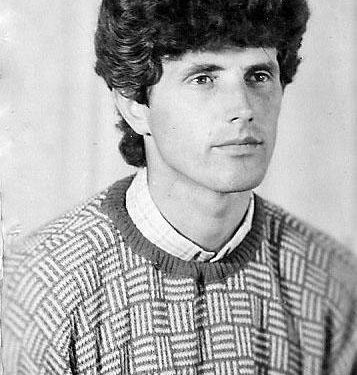
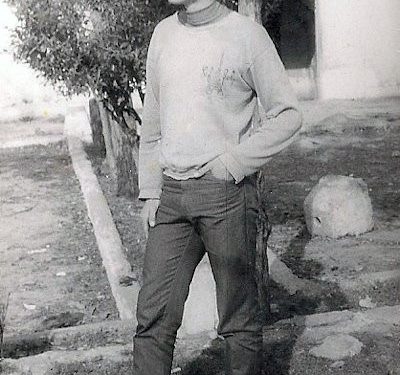
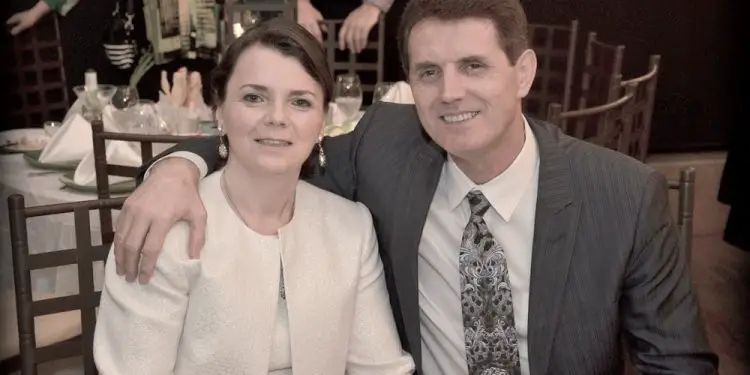
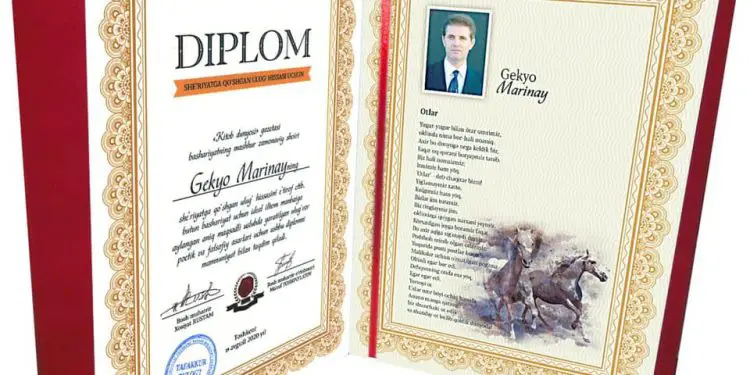


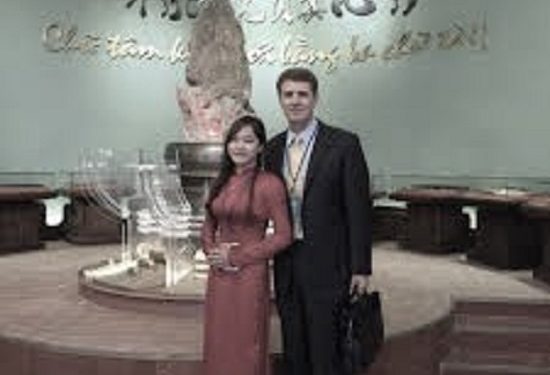
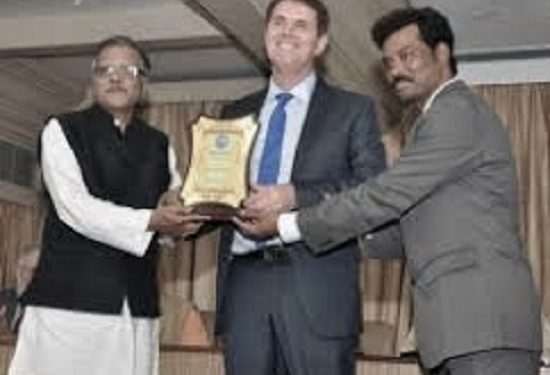
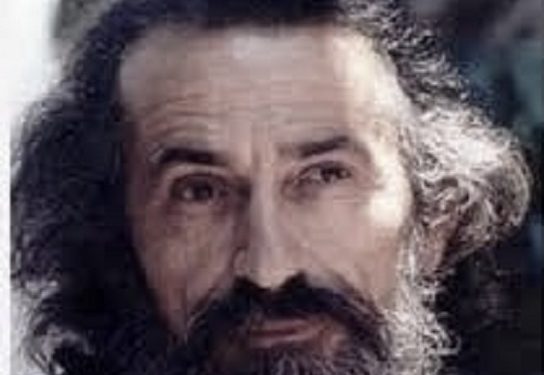
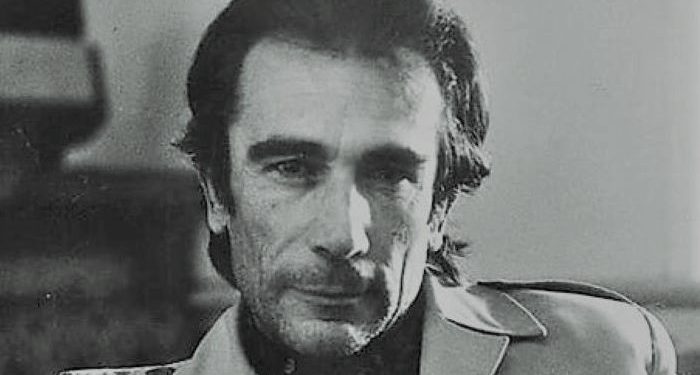
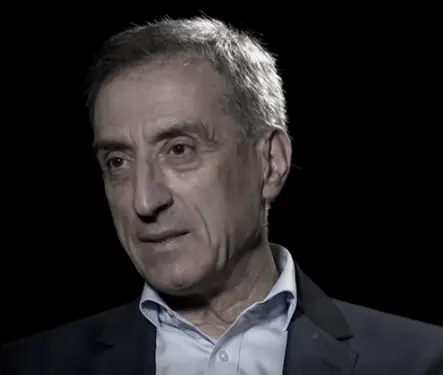
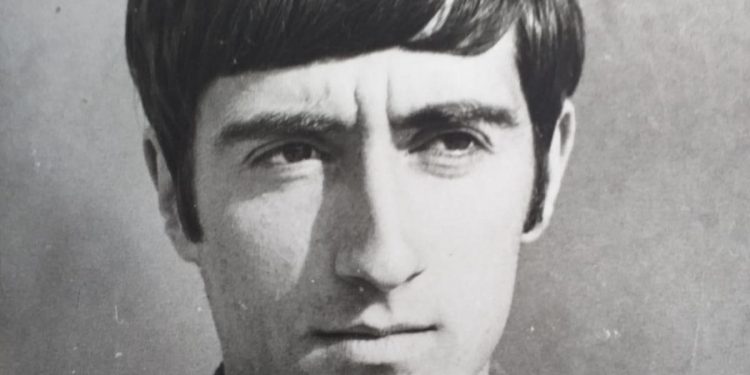


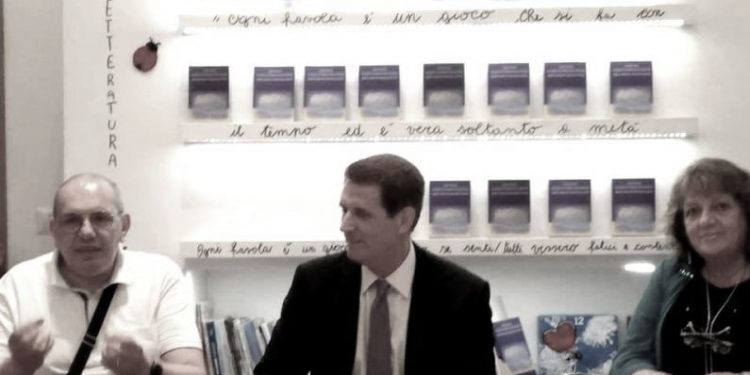
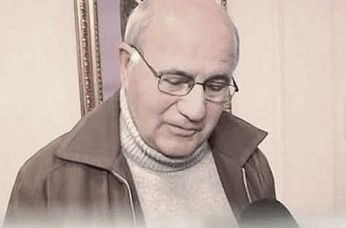
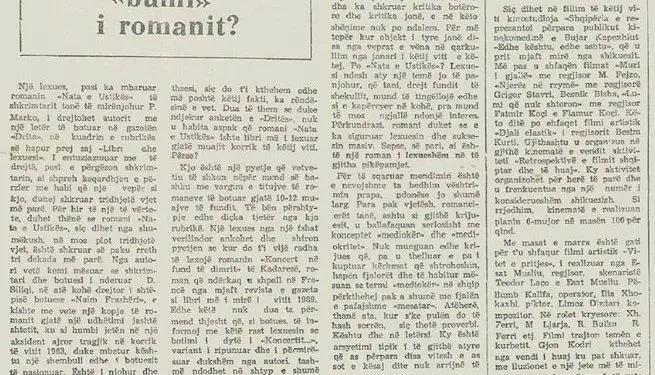
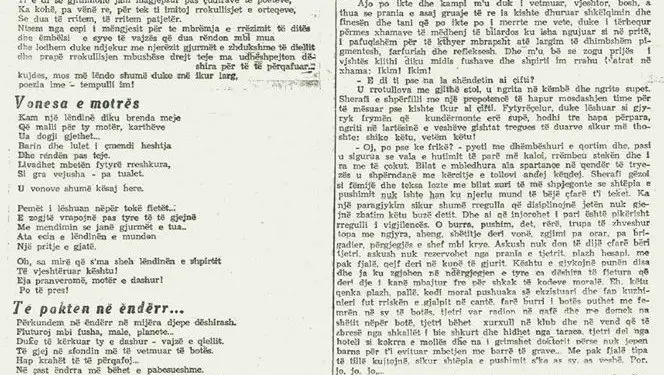
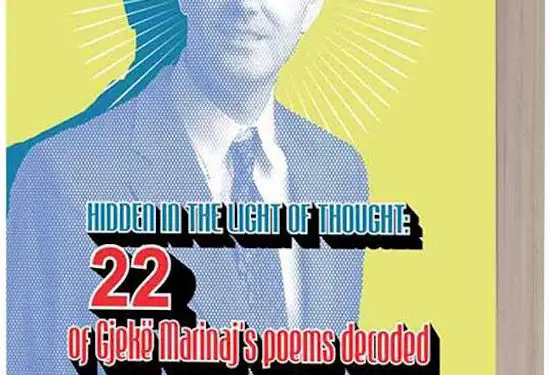
![“The ensemble, led by saxophonist M. Murthi, violinist M. Tare, [with] S. Reka on accordion and piano, [and] saxophonist S. Selmani, were…”/ The unknown history of the “Dajti” orchestra during the communist regime.](https://memorie.al/wp-content/uploads/2026/02/admin-ajax-3-350x250.jpg)
![“In an attempt to rescue one another, 10 workers were poisoned, but besides the brigadier, [another] 6 also died…”/ The secret document of June 11, 1979, is revealed, regarding the deaths of 6 employees at the Metallurgy Plant.](https://memorie.al/wp-content/uploads/2026/02/maxresdefault-350x250.jpg)




